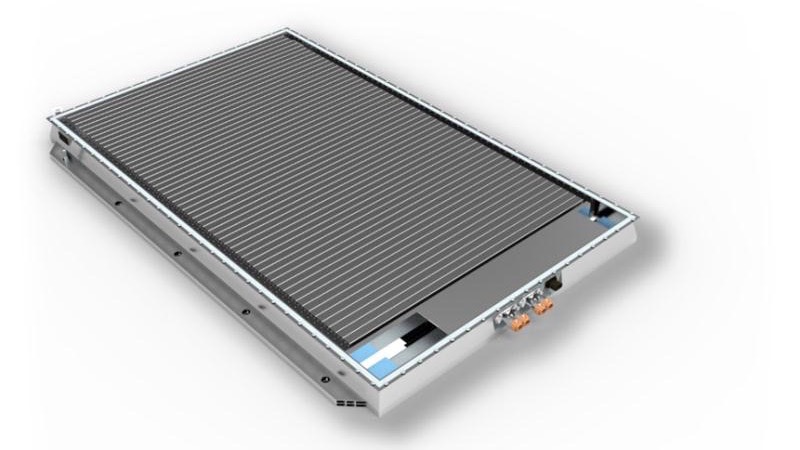Chinese automaker BYD has revealed a new battery pack, to be used in its upcoming flagship sedan. BYD claims the new battery pack, dubbed "Blade" will be a significant step forward in safety.
The battery pack did not overheat or catch fire during nail penetration tests, according to BYD. In the same test, the automaker said other designs either heated up to dangerous levels, or burst into flames.
The Blade battery pack was also heated in a furnace to 300 degrees Celsius (572 degrees Fahrenheit), crushed, bent, and overcharged to 260% without catching fire, BYD said.
BYD believes other automakers have ignored safety in the quest for greater range. The need to achieve greater energy density—the ability to cram more energy into a given volume has come at the expense of safety, the automaker said in a press release.
The new battery pack will be used in the BYD Han EV flagship sedan, set to launch in China in June. The Han EV will have a range of 605 kilometers (375 miles, based on Chinese testing standards) and will do 0-62 mph in 3.9 seconds, according to BYD.
Like other batteries from BYD, the new Blade is lithium iron phosphate—different than the NCM (lithium nickel manganese cobalt oxide) batteries that are used in many of today's other EVs. The automaker says that it's open to sharing its battery technology with other companies.

BYD Blade battery pack
"Today, many vehicle brands are in discussion with us about partnerships based on the technology of the Blade Battery," BYD vice president He Long said in a statement.
For many years, BYD produced more electric cars than any other company. Tesla passed the Chinese firm in global EV sales late last year, though.
In the United States, BYD currently sells vehicles only to commercial fleets. The automaker's e6 crossover was tested in a handful of taxi and ride-sharing services, but BYD's main emphasis has been on larger vehicles.
BYD has developed a strong business around electric buses and has built over 400 buses at a factory in Lancaster, California. The company has also expanded into other vehicle types, including commercial trucks.
While BYD hasn't confirmed plans to sell passenger cars in the U.S., a spokesperson suggested to Green Car Reports in January that the company might again be headed in that direction, as teased by more flamboyant designs.












